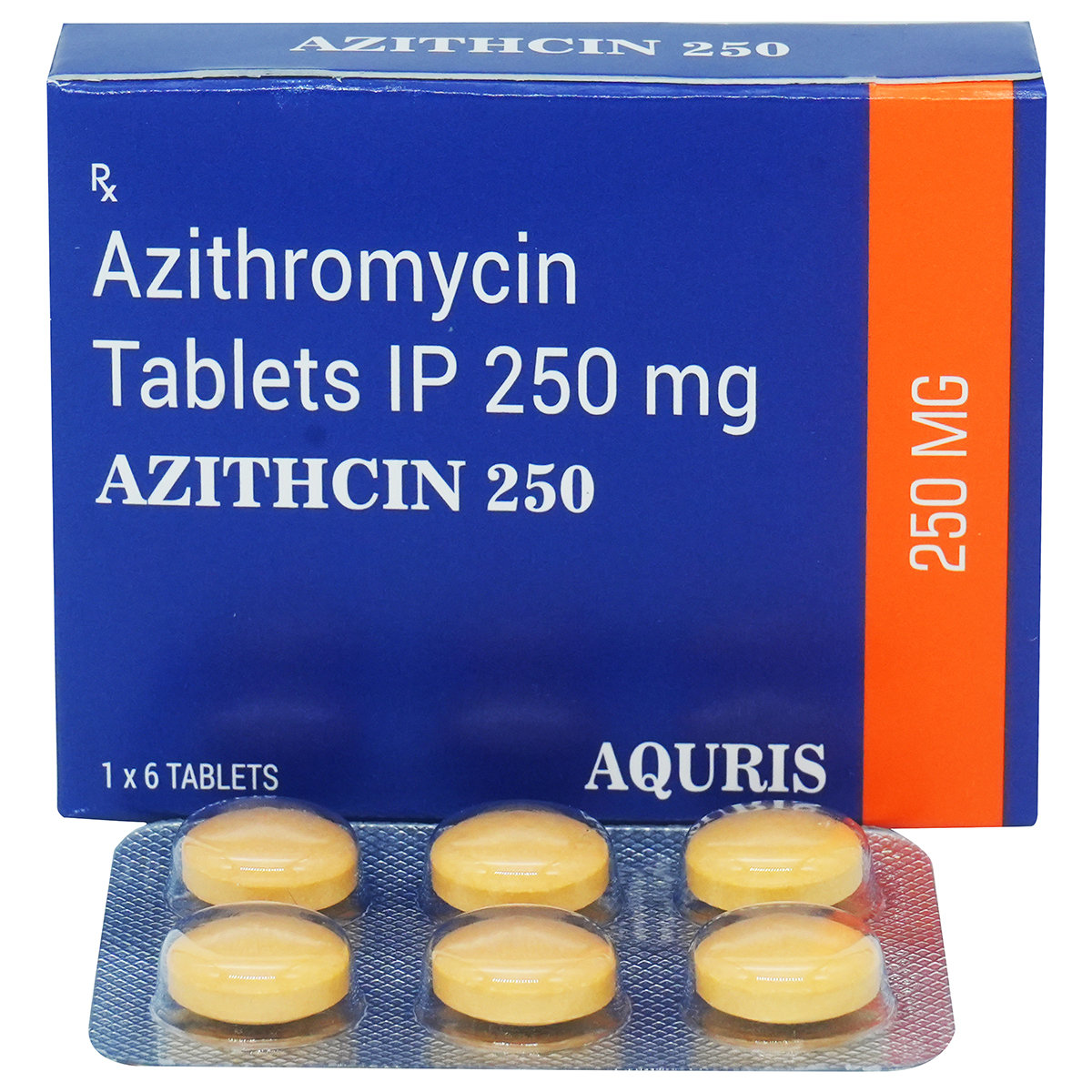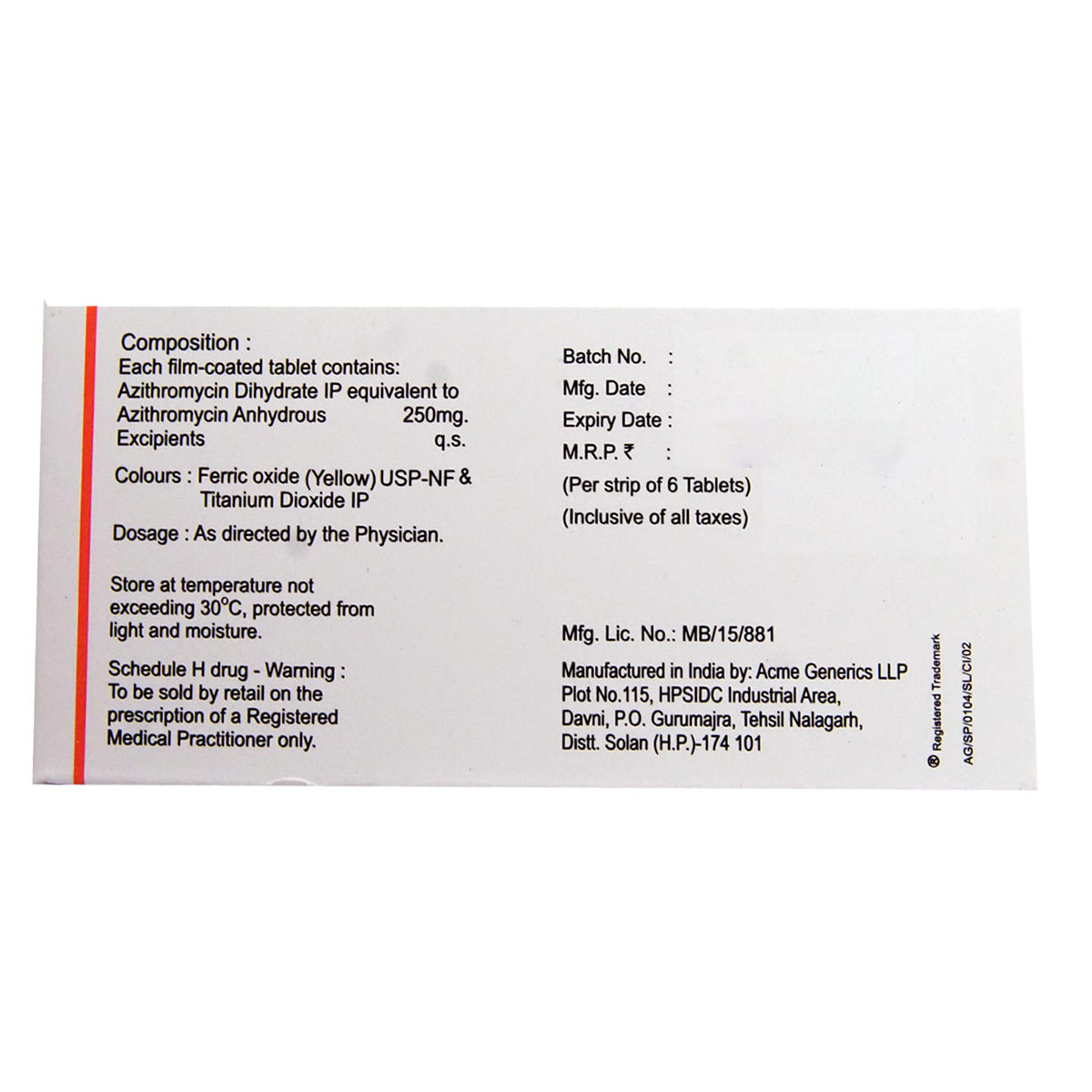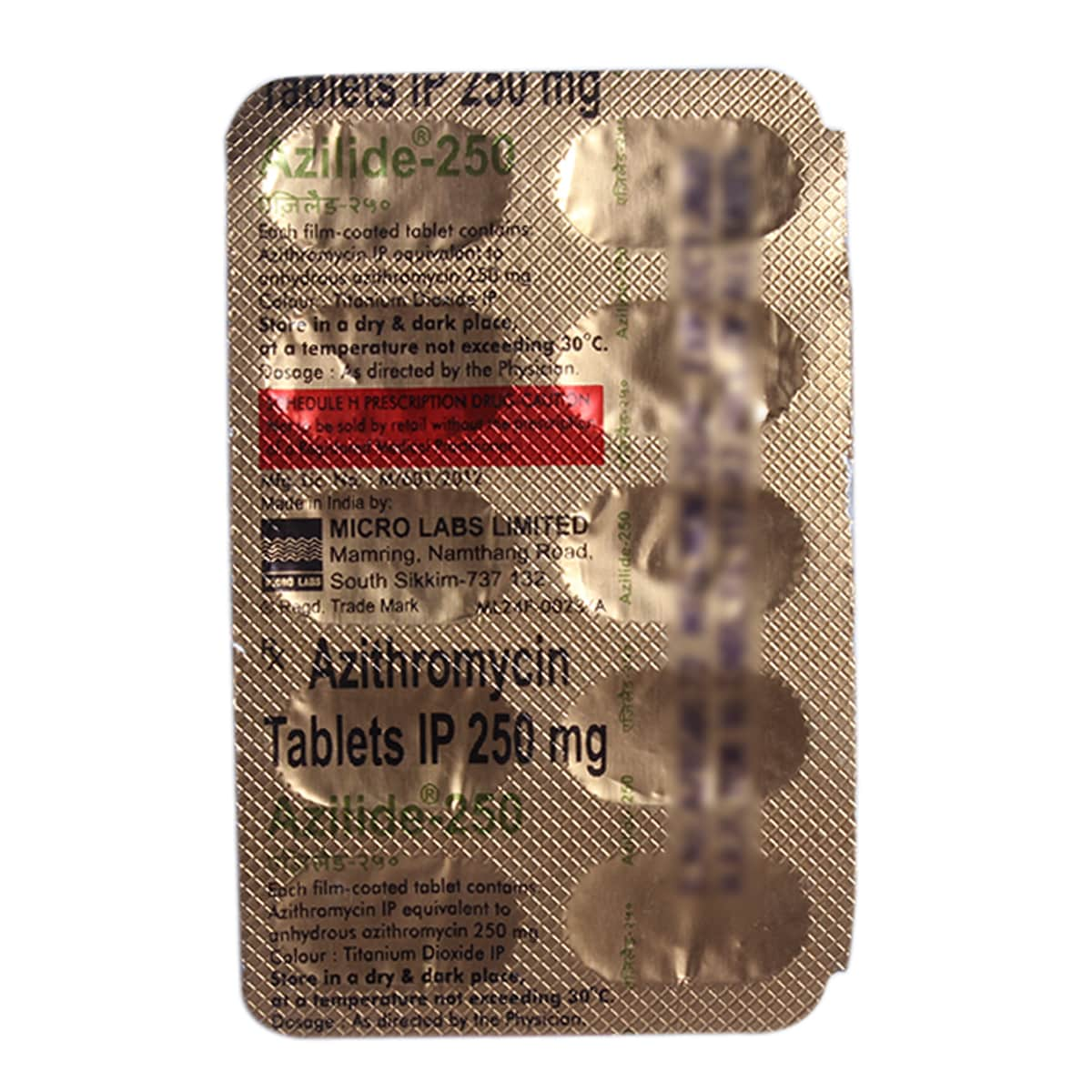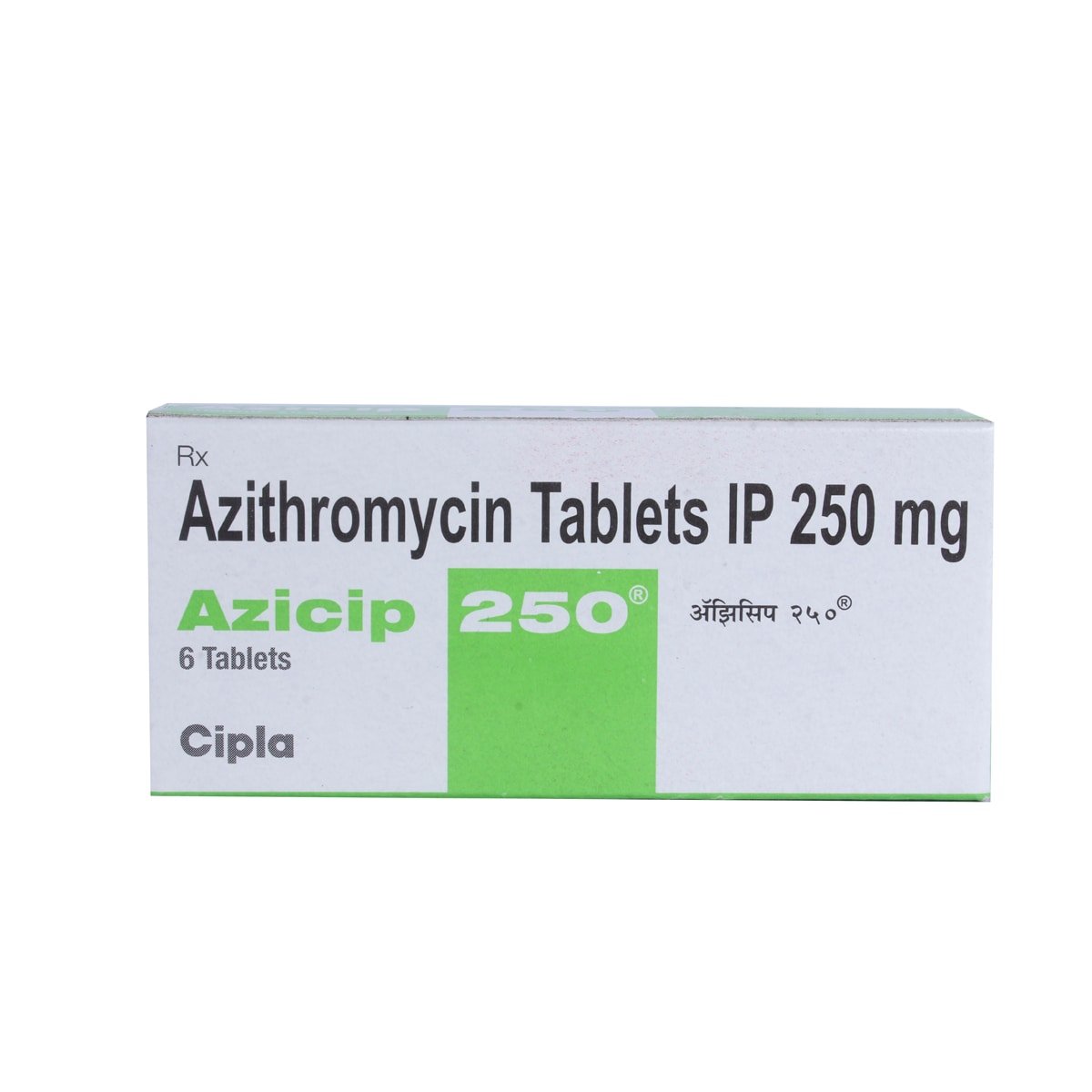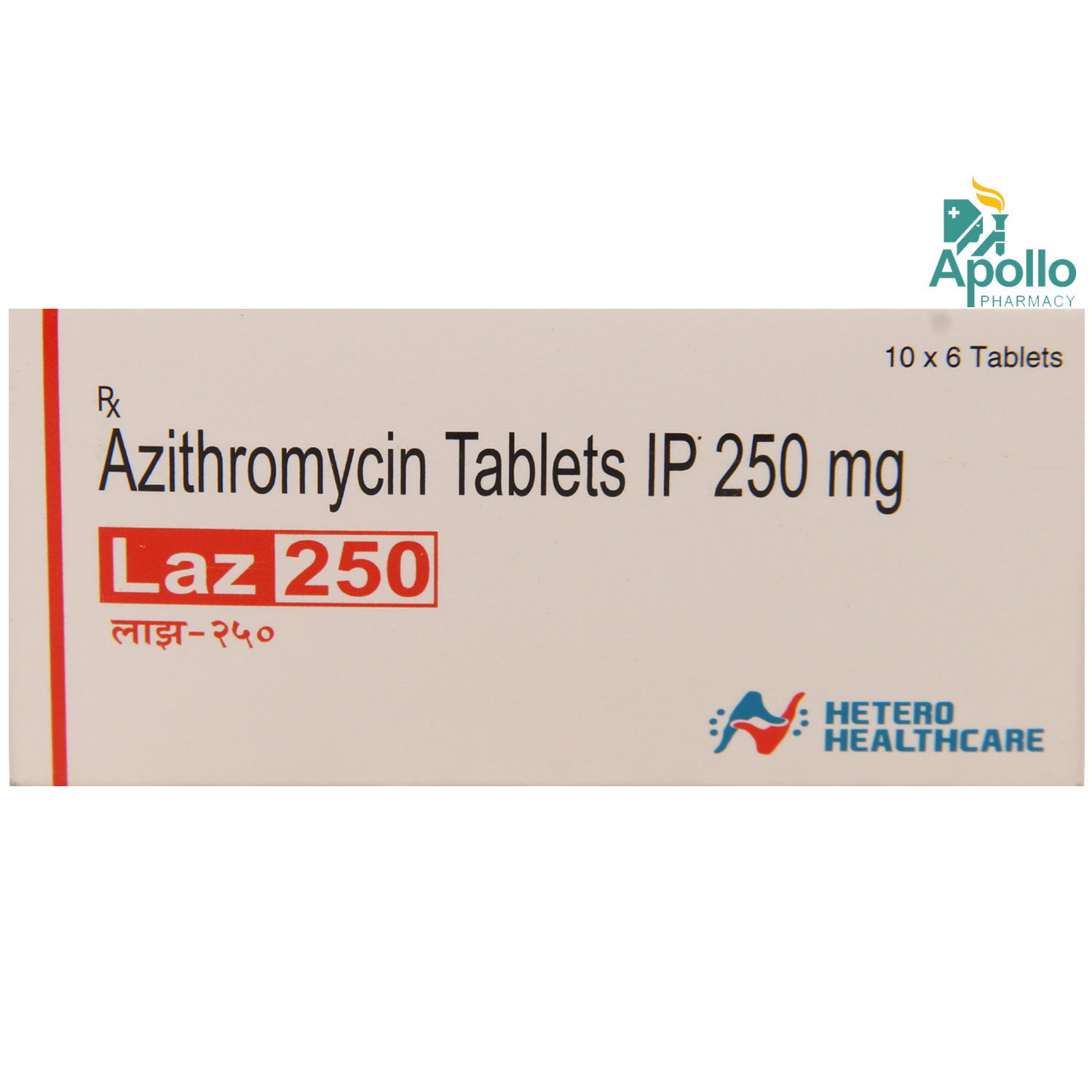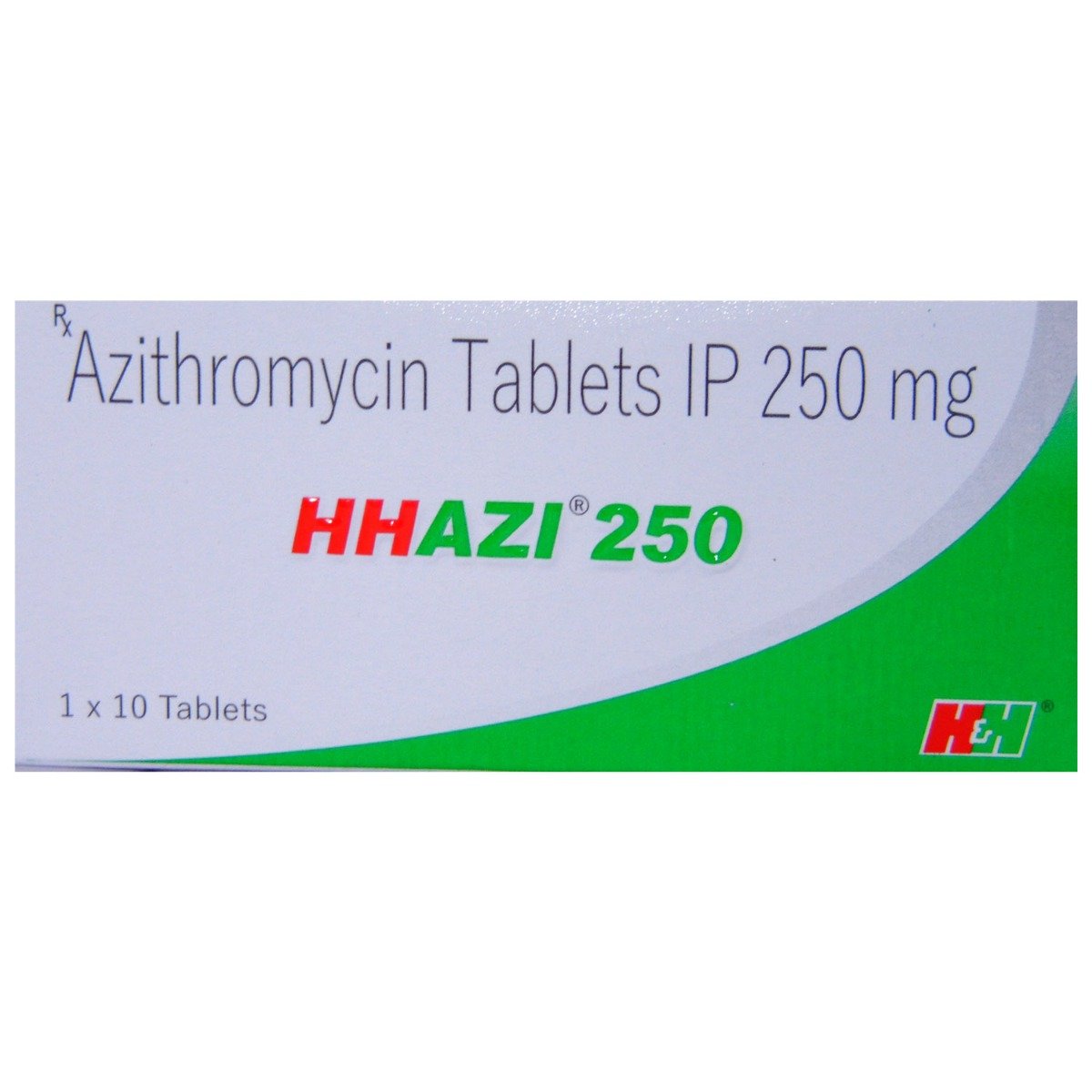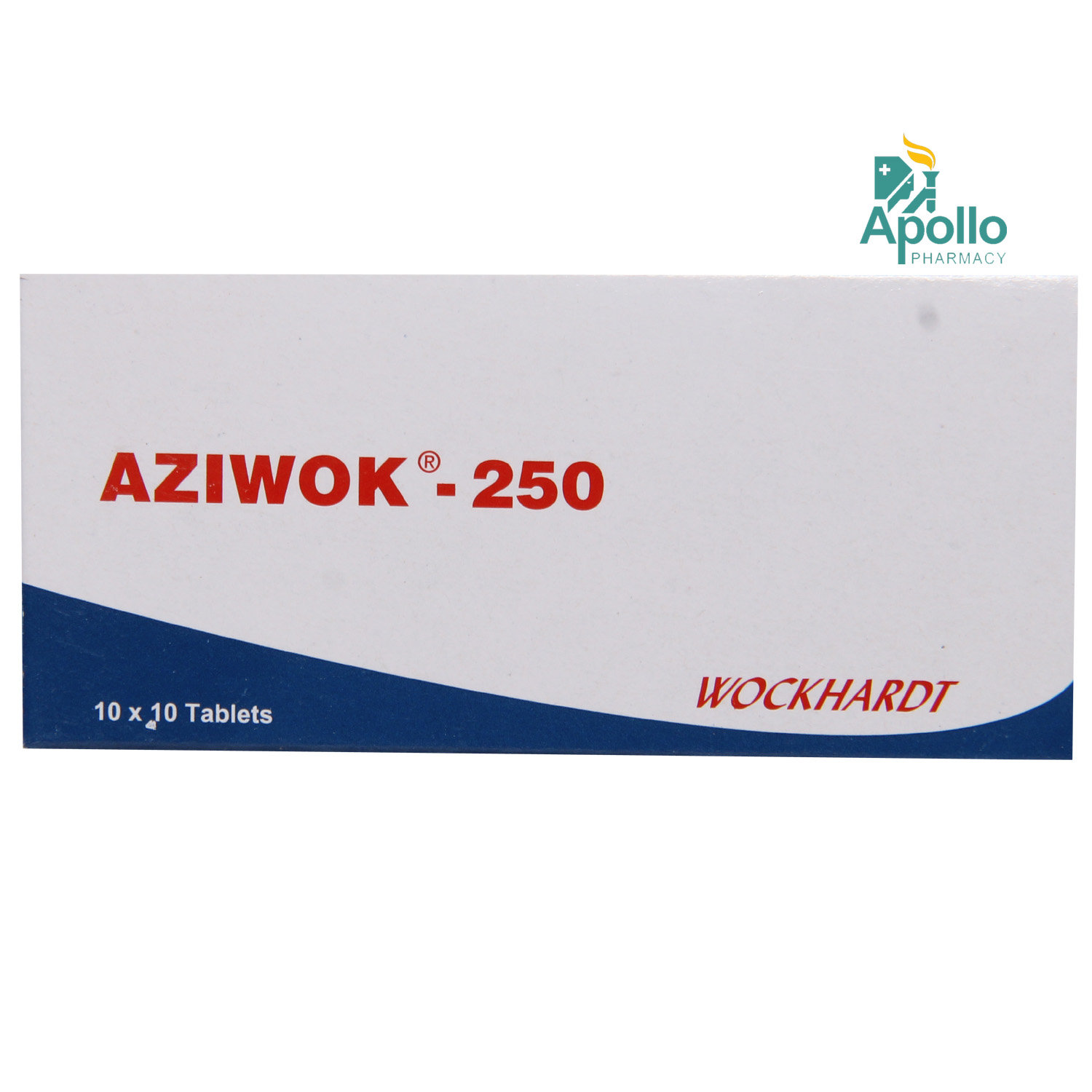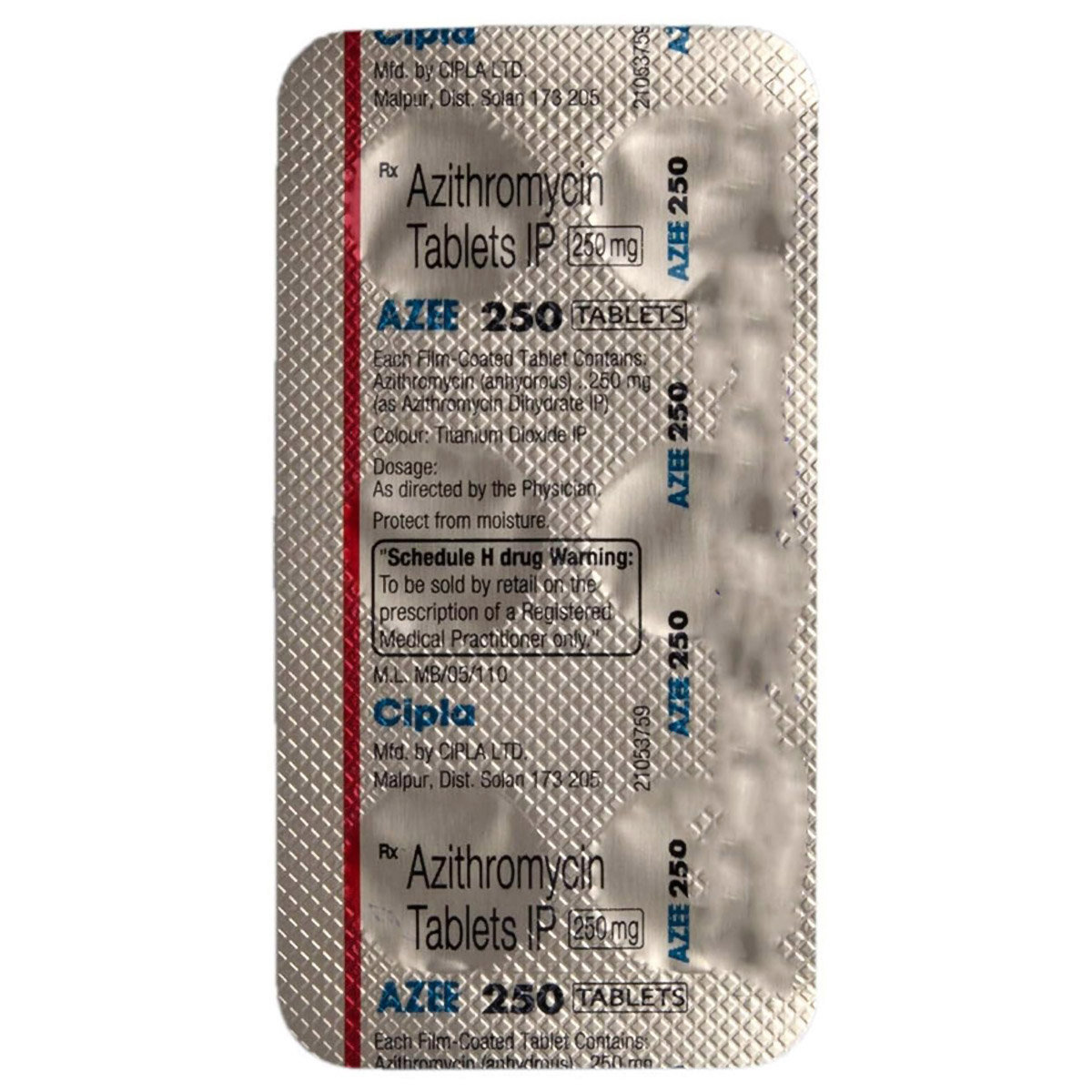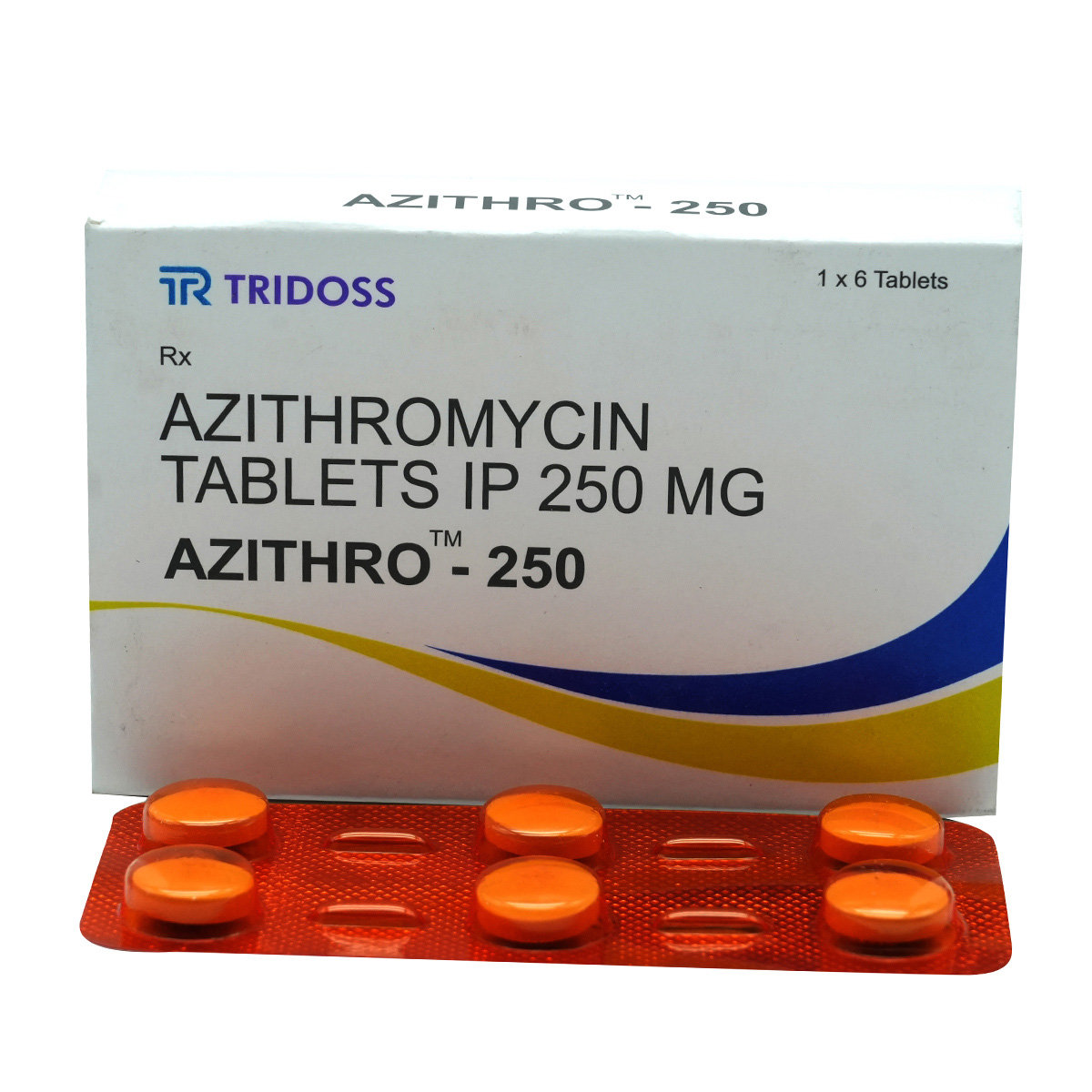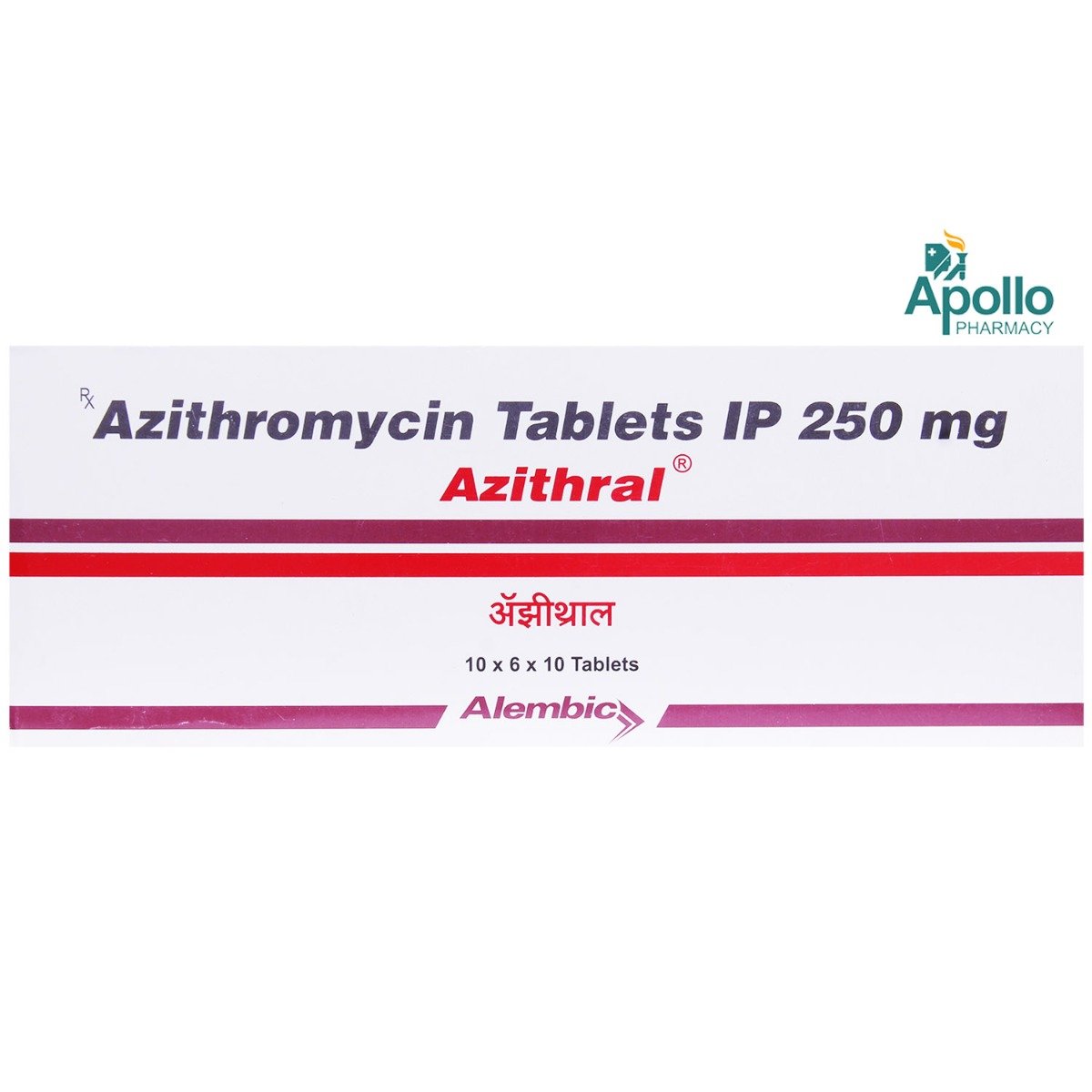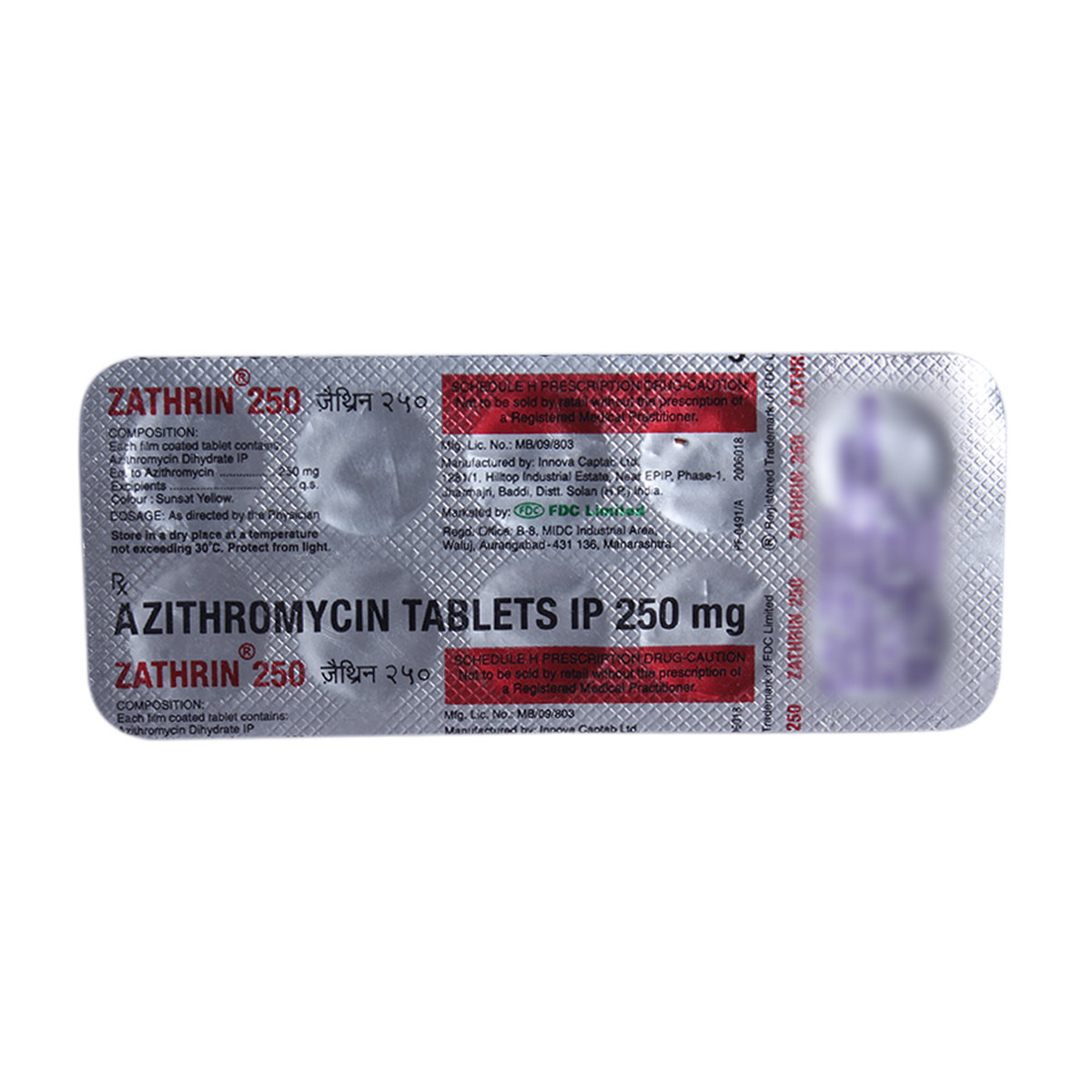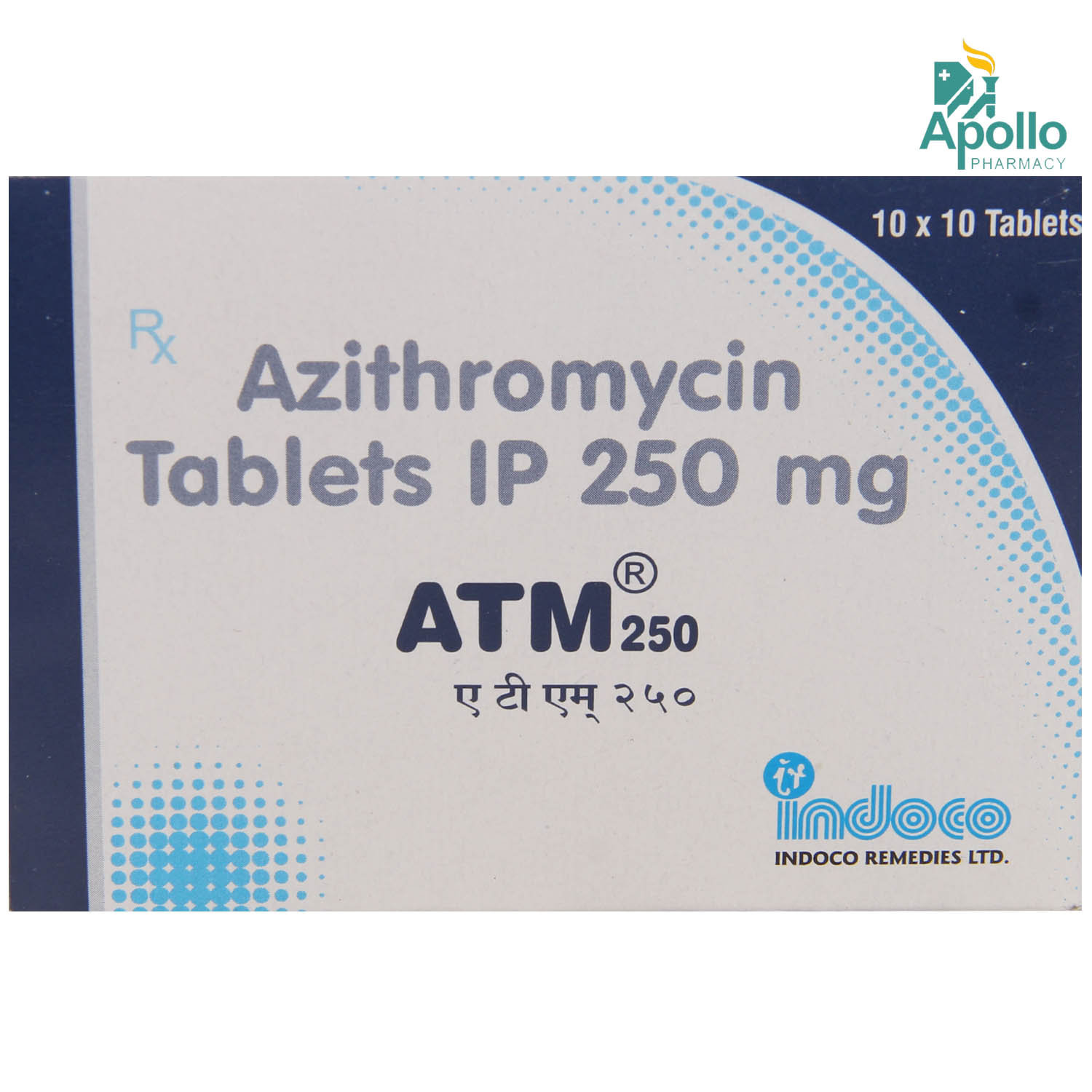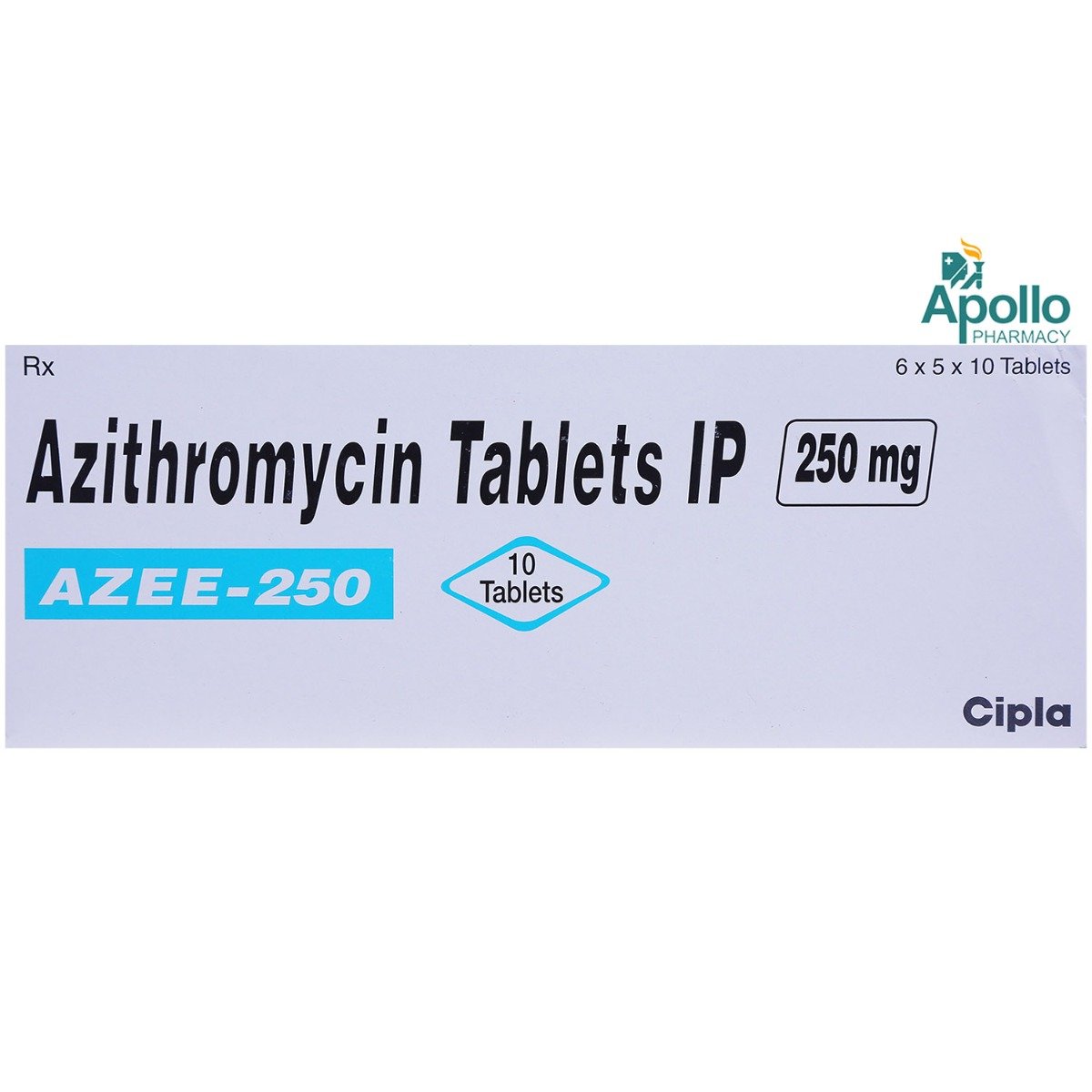- Home
- Azithral 250 mg DT Tablet
Azithral 250 mg DT Tablet Substitute
Azithral 250 mg DT Tablet Substitute
Medicine Composition:
AZITHROMYCIN-250MGAll Substitutes & Brand Comparisons
- Apollo-Trusted
RX
Aquris Azithcin 250 Tablet 6's
Auspharma Pvt Ltd
₹67.5
(₹9.0 per unit)
19% CHEAPER - Apollo-Trusted
RX
Azax 250 Tablet 6's
Sun Pharmaceutical Industries Ltd
₹73.5
(₹9.8 per unit)
12% CHEAPER - Apollo-Trusted
RX
Azilide-250 Tablet 10's
Micro Labs Ltd
₹124
(₹9.92 per unit)
11% CHEAPER - Apollo-Trusted
RX
Azicip 250 Tablet 6's
Cipla Ltd
₹74.5
(₹9.93 per unit)
11% CHEAPER RX
Laz 250 mg Tablet 6's
Hetero Drugs Ltd
₹72.5
(₹10.88 per unit)
2% CHEAPERRX
Hhazi 250 Tablet 10's
Hegde & Hegde Pharmaceutica Llp
₹122
(₹10.98 per unit)
1% CHEAPERRX
Aziwok-250 Tablet 10's
Wockhardt Ltd
₹124
(₹11.16 per unit)
RX
Zady-250 Tablet 10's
Mankind Pharma Pvt Ltd
₹124
(₹11.16 per unit)
RX
Azee 250 Tablet 6's
Cipla Ltd
₹74.5
(₹11.18 per unit)
RX
Azithro 250 Tablet 6's
Tridoss Laboratories Pvt Ltd
₹74.5
(₹11.18 per unit)
RX
Azithral 250 Tablet 10's
Alembic Pharmaceuticals Ltd
₹124.5
(₹11.21 per unit)
RX
Zathrin 250 Tablet 10's
FDC Ltd
₹124.5
(₹11.21 per unit)
RX
ATM 250 mg Tablet 10's
Indoco Remedies Ltd
₹124.5
(₹11.21 per unit)
RX
Azibact 250 Tablet 10's
Ipca Laboratories Ltd
₹124.5
(₹11.21 per unit)
RX
Azee-250 Tablet 10's
Cipla Ltd
₹124.5
(₹12.45 per unit)
11% COSTLIER

When Should You Consider Switching from Azithral 250 mg DT Tablet?
Patients may explore substitutes in the following scenarios:
- High monthly cost of Azithral 250 mg DT Tablet
- Non-availability in local pharmacies
- Generic recommendation by a doctor
- Side effects or better tolerability with alternatives
What to Know Before Switching
Before you switch from Azithral 250 mg DT Tablet to another medicine, here are some important points to keep in mind:
Same salt, different brands:
Most substitutes contain the same active ingredient - AZITHROMYCIN-250MG, but the fillers, coating, or manufacturing quality may vary slightly.
Consult your doctor first:
Even if the salt is the same, your doctor can confirm if the substitute is right for your condition, dosage, and health history.
Watch out for allergies or reactions:
Some people may react differently to certain brands due to inactive ingredients. If you notice any side effects, inform your doctor immediately.
Price ≠ effectiveness:
A lower-priced substitute doesn't mean it's less effective. Many generic medicines work just as well as branded ones.
Check the dosage form and strength:
Always match the substitute’s strength (e.g., 5mg, 10mg) and form (tablet, capsule, syrup) with what your doctor prescribed.
Uses
Azithral 250 mg DT Tablet is used in the treatment of bacterial infections. The detailed uses of Azithral 250 mg DT Tablet are as follows:
- Treatment of Bacterial Infections: Azithral 250 mg DT Tablet is commonly prescribed for managing bacterial infections, including respiratory tract infections such as pneumonia and bronchitis.
- Skin and Soft Tissue Infections: Azithral 250 mg DT Tablet effectively treats skin conditions like cellulitis and other soft tissue infections caused by bacteria that respond to this medication.
- Sexually Transmitted Infections (STIs): Azithral 250 mg DT Tablet is widely used in the treatment of STIs such as Chlamydia and gonorrhea, due to its efficacy against the bacteria responsible for these diseases.
- Ear Infections (Otitis Media): Azithral 250 mg DT Tablet is also employed in the treatment of otitis media, a middle ear infection often seen in children, to alleviate symptoms and combat the infection.
Medicinal Benefits
- Azithral 250 mg DT Tablet slows the growth or sometimes kills the harmful bacteria by preventing the production of proteins required by the bacteria for its survival.
- It is better tolerated and has more effective tissue penetration than other similar antibiotics like erythromycin.
- Doctors prescribe Azithral 250 mg DT Tablet for people who are intolerant to penicillin antibiotics.
FAQs
The substitutes of Azithral 250 mg DT Tablet contain the same active salt(s) - AZITHROMYCIN-250MG. However, they may differ in price, manufacturing quality, and inactive ingredients. Speak to your doctor to find a suitable option.
Switching to a generic substitute medicine in the place of Azithral 250 mg DT Tablet is often possible if it has the same salt, strength, and dosage form. But always check with your doctor before making any changes to your medication.
Generics versions of Azithral 250 mg DT Tablet are typically more affordable because they don’t include the original brand's research, development, and marketing costs. They contain the same active ingredient and are approved for safety and effectiveness.
Most people don’t notice any difference. However, some may react to different fillers or coatings. If you notice any unusual symptoms after switching, consult your doctor.
Make sure the new medicine has the same active salt, strength, dosage form. Always confirm the change with your doctor or pharmacist.
Substitutes of Azithral 250 mg DT Tablet meet the same safety and efficacy standards as Azithral 250 mg DT Tablet, but small differences in absorption or formulation can exist. A doctor can help you choose the right one for your needs.
Yes. Substitutes of Azithral 250 mg DT Tablet may vary in color, size, or shape due to differences in manufacturing and branding, but this does not affect how they work.
Yes, it’s generally safe to switch between multiple substitutes of Azithral 250 mg DT Tablet if they have the same salt and strength. However, always inform your doctor so they can monitor how your body responds.
Yes, many people safely use substitutes of Azithral 250 mg DT Tablet for long-term treatment. Just ensure it’s done under medical supervision.
If your symptoms stay under control or lab results remain stable, the substitute for Azithral 250 mg DT Tablet is likely working well. Regular follow-ups with your doctor are important.
Absolutely. Even with the same salt, small differences can affect how your body responds when switching from Azithral 250 mg DT Tablet to its substitute. Always consult your doctor before switching.
Azithral 250 mg DT Tablet is used to treat bacterial infections such as respiratory tract infections (like pneumonia, bronchitis, tonsillitis, pharyngitis and sinusitis), skin infections (like acne and rosacea), ear infections, and sexually transmitted infections. It works by killing the harmful bacteria.
Do not take antacids that contain aluminium or magnesium hydroxide within 2 hours before or after you take Azithral 250 mg DT Tablet. These antacids can interact with Azithral 250 mg DT Tablet and make them less effective when taken at the same time.
Never stop the treatment with Azithral 250 mg DT Tablet on your own as the infection may come back again (relapse) if the prescribed treatment is not completely taken. Before stopping Azithral 250 mg DT Tablet once discuss this with your doctor.
If you forget to take Azithral 250 mg DT Tablet, take your dose as soon as possible. If it is almost time for the next dose, just skip that dose and take the next one when it is due. If in doubt, please contact your doctor. Do not take a double dose to make up for a forgotten dose
Azithral 250 mg DT Tablet can cause diarrhoea, which may be a sign of a new infection. If you have diarrhoea that is watery or bloody, call your doctor. Do not use anti-diarrhoea medicine unless your doctor tells you to.
You should avoid taking Azithral 250 mg DT Tablet if you have colitis (intestine inflammation), heart rhythm disorder, liver disease (like jaundice), and muscle problem (like myasthenia gravis). Contact your doctor if you have these conditions before taking Azithral 250 mg DT Tablet.
No, it is a Schedule H drug that can be taken only if your doctor has prescribed it. Taking it on your own or self-medication can cause unwanted side-effects and lead to antibiotic resistance thereby lowering its efficiency.
Yes in some cases, people using Azithral 250 mg DT Tablet may get a fungal skin infection known as thrush. It happens because Azithral 250 mg DT Tablet also kills harmless bacteria that protects against thrush.
Azithral 250 mg DT Tablet is an effective antibiotic that helps treat bacterial infections. It has a broad spectrum of anti-bacterial activity and is effective against gram-positive and gram-negative bacteria.
Azithral 250 mg DT Tablet can be taken with or without food.
Azithral 250 mg DT Tablet should be used with caution in patients with liver problems. In some cases, the use of Azithral 250 mg DT Tablet can cause diarrhoea, so if you have watery or bloody diarrhoea, stop taking Azithral 250 mg DT Tablet and call your doctor.
Azithral 250 mg DT Tablet may interact with anti-emetics, neuroleptics, migraine medicines, statins, anticholinergics and anti-gout medicines. Before starting Azithral 250 mg DT Tablet, let the doctor know if you are taking any other medicines to prevent interactions.
Store Azithral 250 mg DT Tablet at room temperature, in a cool and dry place. Keep it out of sight and reach of children.
Side effects of Azithral 250 mg DT Tablet include diarrhoea, nausea, vomiting, and indigestion. Please consult the doctor if any of the side effects persist or worsen.
Azithral 250 mg DT Tablet slows the growth or sometimes kills the harmful bacteria by preventing the production of proteins required by the bacteria for its survival.
Buy best Infections & Infestation products by
Cipla Ltd
Macleods Pharmaceuticals Ltd
Alkem Laboratories Ltd
Lupin Ltd
Abbott India Ltd
Mankind Pharma Pvt Ltd
Sun Pharmaceutical Industries Ltd
Aristo Pharmaceuticals Pvt Ltd
Micro Labs Ltd
Intas Pharmaceuticals Ltd
Glenmark Pharmaceuticals Ltd
FDC Ltd
Zydus Healthcare Ltd
Ipca Laboratories Ltd
United Biotech Pvt Ltd
Torrent Pharmaceuticals Ltd
Emcure Pharmaceuticals Ltd
Leeford Healthcare Ltd
Zuventus Healthcare Ltd
Biochem Pharmaceutical Industries Ltd
Hetero Drugs Ltd
Dr Reddy's Laboratories Ltd
Fusion Health Care Pvt Ltd
Alembic Pharmaceuticals Ltd
Cadila Healthcare Ltd
Indoco Remedies Ltd
Zydus Cadila
Wockhardt Ltd
AAA Pharma Trade Pvt Ltd
Morepen Laboratories Ltd
Converge Biotech Pvt Ltd
Capital Pharma
Cadila Pharmaceuticals Ltd
GlaxoSmithKline Pharmaceuticals Ltd
Gufic Bioscience Ltd
Elder Pharmaceuticals Ltd
Blue Cross Laboratories Pvt Ltd
Hetero Healthcare Pvt Ltd
Alniche Life Sciences Pvt Ltd
Medishri Healthcare Pvt Ltd
Akumentis Healthcare Ltd
Mylan Pharmaceuticals Pvt Ltd
Corona Remedies Pvt Ltd
Pfizer Ltd
Apex Laboratories Pvt Ltd
Vasu Organics Pvt Ltd
Wallace Pharmaceuticals Pvt Ltd
Samarth Life Sciences Pvt Ltd
Veritaz Healthcare Ltd
Koye Pharmaceuticals Pvt Ltd
Unifaith Biotech Pvt Ltd
Laborate Pharmaceuticals India Ltd
Overseas Health Care Pvt Ltd
Hegde & Hegde Pharmaceutica Llp
Shreya Life Sciences Pvt Ltd
Biochemix Health Care Pvt Ltd
Canixa Life Sciences Pvt Ltd
East West Pharma India Pvt Ltd
Lincoln Pharmaceuticals Ltd
Ajanta Pharma Ltd
Ranbaxy Laboratories Ltd
Biocon Ltd
Klm Laboratories Pvt Ltd
Natco Pharma Ltd
Zee Laboratories Ltd
Zymes Bioscience Pvt Ltd
Aequitas Healthcare Pvt Ltd
Indchemie Health Specialities Pvt Ltd
Medley Pharmaceuticals Ltd
Pristine Pearl Pharma Pvt Ltd
Allites Life Sciences Pvt Ltd
German Remedies Ltd
BDR Pharmaceuticals Internationals Pvt Ltd
Brinton Pharmaceuticals Ltd
Icarus Health Care Pvt Ltd
Kivi Labs Ltd
Neon Laboratories Ltd
Unichem International
Yuventis Pharmaceuticals
Aurz Pharmaceutical Pvt Ltd
J B Chemicals & Pharmaceuticals Ltd
Unipark Biotech Pvt Ltd
Biological E Ltd
Celon Laboratories Pvt Ltd
DR Johns Lab Pharma Pvt Ltd
Intra Life Pvt Ltd
La Renon Healthcare Pvt Ltd
Medgen Drugs And Laboratories Pvt Ltd
Aionios Pharma Pvt Ltd
Megma Healthcare Pvt Ltd
Kepler Healthcare Pvt Ltd
Nicholas Piramal India Ltd
Concord Biotech Ltd
Indiabulls Pharmaceuticals Pvt Ltd
Lividus Pharmaceuticals Pvt Ltd
Signova Pharma
Suraksha Pharma Pvt Ltd
Bros Enterprises Ltd
Fresenius Kabi India Pvt Ltd
Novartis India Ltd
